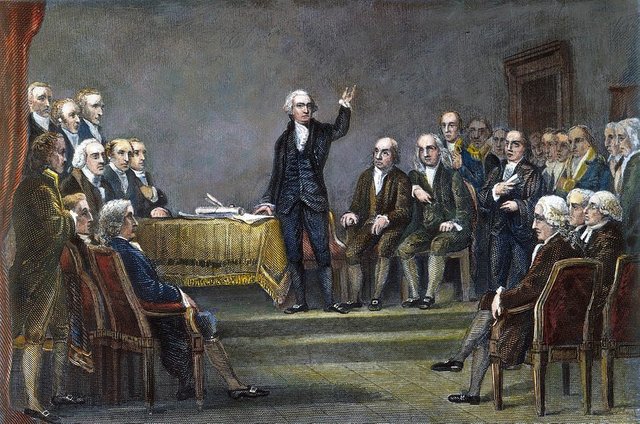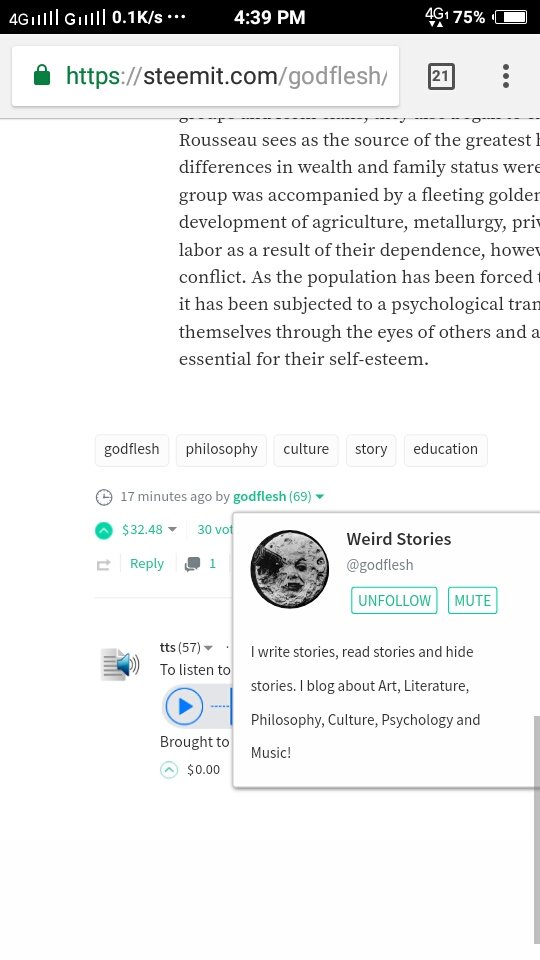Rousseau and the stages of human development
Rousseau believes that the diva step is not the first of human development, but the third. Rousseau has accepted that this stage of human development is optimal between social development and the extreme state of wild animals and animals such as "monkey people" on the one hand and another extreme of decadent civilized life. This has led some critics to attribute to Rousseau the invention of the noble savage, as Arthur Lavjoy convincingly reveals Rousseau's hidden thought. the expression "noble savage" was first used in 1672 by the British poet John Dryden in his play "The Conquest of Granada". Rousseau writes that morality is not a social structure, but rather "public" in the sense of "innate", the growth of man's instinctive unwillingness to witness the suffering from which the emotions of compassion and sympathy arise. These are feelings shared with animals and for whose existence he even admits, Thomas Hobbes. Contrary to what many of his critics say, Rousseau never assumes that people in a natural state act morally, and in fact, terms like "justice" or "evil" are inappropriate for the political society, as Rousseau means. Moral law, ie self-control, can only be developed through careful civic education. People in a "natural state" can act with all the ferocity of an animal. They are good only in a negative sense, because they are independent and therefore not subject to the vices of the political society.
In fact, Rousseau's natural man is almost identical to a chimpanzee or other monkey, such as orangutan, as described by Buffon; "The natural goodness of man is this goodness of an animal that is neither good nor bad. Rousseau proposes this except for brief moments of balance, on or until its beginning, when relative equality between men prevails, human civilization has always been artificial, creating inequality, jealousy and unnatural desires. In Rousseau's philosophy, the negative influence of society on men focuses on turning it from Amour de Soi, a positive love for itself, into Amour-propre, or pride. Amour de soi represents the instinctive human desire for self-preservation, combined with the human power of reason. In contrast, Amour-propre is artificial and encourages man to compare with others, thereby creating unwarranted fear and allowing men to enjoy the pain or weakness of others. Rousseau is not the first to make this distinction. It was also used by Voverarg, by the way. In the discourse of science and the arts, Rousseau argues that they were not beneficial to humanity because they did not arise from authentic human needs, but rather from pride and vanity. Moreover, the opportunities they create for idleness and luxury have contributed to the corruption of man. He suggests that the advancement of knowledge has made governments stronger and crushed individual freedom; and he concludes that material progress has in fact undermined the possibility of true friendship by replacing it with jealousy, fear and suspicion.
Unlike the optimistic view of the other Enlightenment figures, for Rousseau, progress is unfavorable to the well-being of mankind unless it can be countered by the cultivation of civic morality and duty. Society bribes people to the point where the social contract fails, as we see in modern society, as described in "The Discipline of Inequality" (1754). In this essay, which develops the ideas introduced in the "Discovery of Sciences and the Arts", Rousseau follows the social revolution of man from the primitive state of nature to modern society. The earliest lonely people had a basic disk for self-preservation and a natural propensity for sympathy or regret. They differ from animals, however, in their capacity for free will and their potential for perfection. As they began to live in groups and form clans, they also began to experience the family love that Rousseau sees as the source of the greatest happiness known to mankind. While differences in wealth and family status were minimal, the first collection in a group was accompanied by a fleeting golden age of human growth. The development of agriculture, metallurgy, private ownership, and the division of labor as a result of their dependence, however, lead to economic inequality and conflict. As the population has been forced to associate more and more, the more it has been subjected to a psychological transformation. They began to see themselves through the eyes of others and appreciate their good opinion as essential for their self-esteem.

To listen to the audio version of this article click on the play image.

Brought to you by @tts. If you find it useful please consider upvoting this reply.
hey @godflesh, i am votes and follow your post , so votes my post and follow my profile

i am votes and follow proof image
thanks
okey, I voted for your last post :)
upvoted, resteemed and applauded!
Your post is amazing.
I do vote comnent and follow do same for me
It seems what ailed society in all of these philosopher's time still applies today